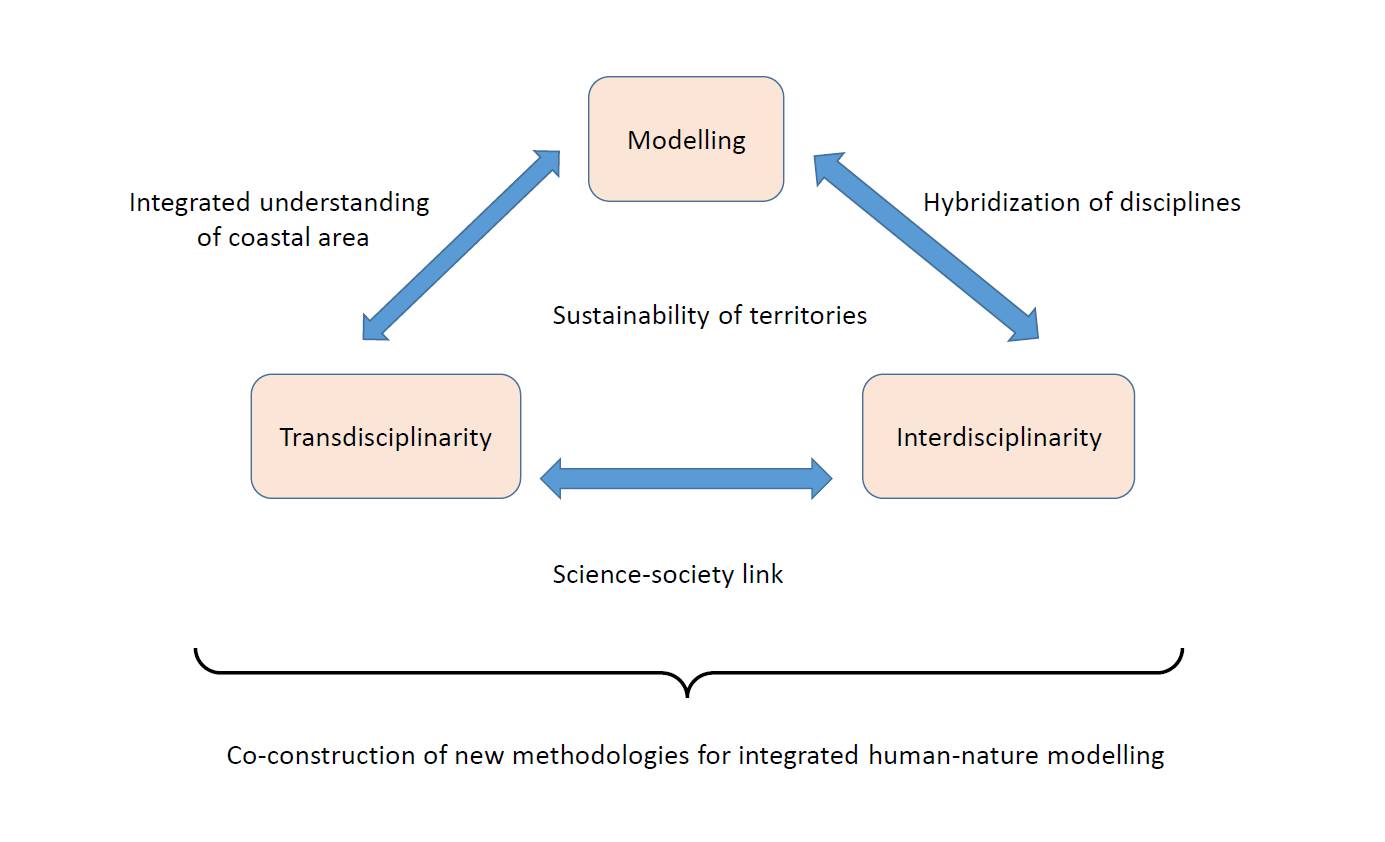
Transverse axis
Axe 1 Modelling and methodologies for trans- and interdisciplinarity
© E. Amice, CNRS
Main objective
The transversal axis methodological objective consists of designing, improving and experimenting tools that promote synergy between stakeholders (scientists and managers) in order to provide (i) a comprehensive understanding of the structure, functioning and complex dynamics of coastal socio-ecosystems and to facilitate (ii) integrated management of coastal territories and adaptation to global changes.
Description
This cross-cutting theme aims at providing (i) a toolbox shared between the themes, and (ii) a public forum for the emergence, co-construction, testing and improvement of approaches for stakeholders engagement and more effective, decision-making for sustainable coastal resources management.
Proposed tools are to address specific needs and issues identified in any of the themes 1 to 4 ; but also to facilitate cross-theme dialogue and animation, and in particular to integrate knowledge across themes and disciplines. The axis also aim at harmonising and interfacing scientific, professional and institutional initiatives within ZABrI.
Through its methodological focuses, axis 1 seeks:
1/ to develop interdisciplinary (across scientific ) and transdisciplinary (between all the actors of the territory) working methods. By facilitating the sharing of knowledge, the aim is to consolidate a shared vision and an integrated and co-constructed understanding of issues and complex dynamics of coastal territories. Co-construction of scenarios and assessment of their consequences can also provide some insights on potential futures of coastal socio-ecosystems. Finally, this line of research aims to help structure decisions and prioritise management measures in order to identify economic, legal and societal levers of action to guide management trajectories towards a transition towards a sustainable system in a context of global ecological changes.
2/ to consolidate the skills and expertise related to inter- and transdisciplinary tools within the ZABrI. This will be achieved through training (e.g. summer schools or workshops) and coordinating of collective synthesis across case-specific experiments and individual experiences.
Beyond its methodological focus, this axis contributes to (re)thinking and exploring human-nature relationships, to enhancing the hybridization of disciplines and to assessing and highlighting the added value of transdisciplinary approaches for co-constructing the sustainability of the coastal zone.

Coordinators
- M. Marzloff (Ecology, Ifremer)
- A. Pomade (Law, AMURE)
